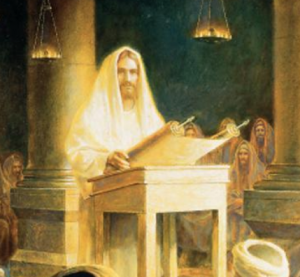
One of the constant themes of Holocaust Memorial Days in ‘never again’. We remember for a reason – to reflect on the degradation that we human beings can sink to and to hope and pray that it will never happen again. But it is happening again. Cambodia, Rwanda, Bosnia happened after the Holocaust; the atrocities in Sudan and Dafur still continue; the world watches the discrimination and violence perpetrated against the Rohingya in Myanmar and the Uighar Muslims in China; we see refugees and asylum seekers turned away by affluent countries. And I am implicated in all of this because the perpetrators as well as the victims are related to me in this one human family of which we are all members. This connection and realisation are painful.
Joanna Macey talks about honouring the pain of the world, the importance of opening our heart to it and not running away from it. This means lamenting my own sinfulness and that of my brothers and sisters and determining that things should be different. But what can I do to make a difference when so many of these atrocities are politically motivated and organised. Can I make a difference?
The late Lord Jonathan Sacks has a story that he tells in an interview about the Holocaust. He calls it the butterfly story and it goes something like this: there was a holy, wise and distinguished rabbi who could see into the reality of things. On a visit to a certain village two troublemakers thought they could catch him out. One said to the other, see I have a butterfly cupped in my hand: I will ask the Rabbi if he knows what is there and, if he indeed answers that it is a butterfly, I will ask him if it alive or dead: if he says dead, I will open my hands and it will be alive: if he says alive, I will crush the butterfly and it will be seen to be dead. So they approached the Rabbi and asked what was in the fellow’s cupped hands- a butterfly answered the Rabbi. And is it dead or alive? The Rabbi looked them in the eye and said ‘the answer is in your hands’. Life and death – the answer is in our hands. What a good way to illustrate the verse from book of Deuteronomy which says “I call on heaven and earth to witness against you today: I set before you life or death, blessing or curse. Choose life, then, so that you and your descendants might live” (Deut. 30: 19).
The theme of this year’s Holocaust events says the same thing in another way, ‘Be a Light in the World’ which we will do by always standing up for and promoting life wherever we are. In his latest encyclical, Fratelli Tutti, Pope Francis encourages us: “choose to cultivate kindness. Those who do so become stars shining in the midst of darkness”. Kindness is within the reach of all of us. It “frees us from the cruelty that at times infects human relationships, from the anxiety that prevents us from thinking of others, from the frantic flurry of activity that forgets that others also have a right to be happy……… (it) can create a healthy social atmosphere in which misunderstanding can be overcome and conflict forestalled…….it opens new paths where hostility and conflict would burn all bridges” (FT 224).
The Holocaust and other genocides succeeded because people, our brothers and sisters, were seen as less than human, described as vermin or cockroaches, classified as ‘them’ and not ‘us’. It’s not a long way from this kind of thinking to active discrimination and hate speech which we know from experience can lead to violence and even extermination. Kindness can rescue us from this path. It may seem insignificant but it has ripples and consequences that can lead our human family towards life, hope, peace and reconciliation.
The future too is in our hands.



 RSS Feed
RSS Feed
